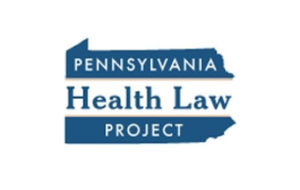PA Health Policy Update for the Week of July 26-30
The following is an update of selected state health policy developments in Pennsylvania for the week of July 26-30, 2021. (Some of the language used below is taken directly from state documents.)
General Assembly
House majority leader Kerry Benninghoff announced this week that he sent letters to state agencies notifying them that they should be prepared to have the nearly 500 waived and suspended regulations that were in place under the COVID-19 emergency disaster declaration reinstated on September 30, 2021. He also encouraged agencies to work closely with the relevant standing committees in the House to review which regulations should be permanently repealed or reformed. The letter noted the need to work expeditiously given the limited number of legislative session days scheduled between now and September 30. Benninghoff also highlighted in a letter to the Department of Health that “…nothing in current law prohibits tele-health services from being provided at pre-pandemic levels.” See Benninghoff’s letter to the Office of Administration here and his letter to the Department of Health here.
 Department of Health
Department of Health
The Department of Health has invited applications for the approval of up to two additional academic clinical research centers as part of its medical marijuana program. Applications will be available beginning on August 3 on the Department of Health’s web site and applications are due September 2. Learn more from the department’s notice published in the Pennsylvania Bulletin.
The Department of Health plans to pursue a series of changes in the manner in which long-term-care facilities are regulated. It intends to do so in five separate parts and has published one of those parts, with explanations, in the Pennsylvania Bulletin.
Department of Human Services
- DHS has issued a Medical Assistance Bulletin to inform providers that it is expanding the scope of Medicaid-enrolled providers that may bill the program for administration of COVID-19 vaccines and monoclonal antibody therapy. The new policy applies to physicians, certified registered nurse practitioners, certified nurse midwives, outpatient hospital clinics, independent medical/surgical clinics, home health agencies, renal dialysis centers, psychiatric outpatient clinics, drug and alcohol outpatient clinics, partial psychiatric hospitals, ambulance providers and licensed pharmacies. The policy is retroactive to April 1. Find the bulletin here.
- DHS has issued a Medical Assistance Bulletin to inform providers that the Medical Assistance program will make an enhanced payment for the administration of COVID-19 vaccines to Medicaid beneficiaries who are homebound and has added a CPT code for the billing of this service. The policy is retroactive to April 1. Learn more in the bulletin notice.
- DHS and the Department of Aging are seeking presenters for their 2021-2022 protective services virtual conference, to be held on October 6 and October 7. This year’s conference is about getting back to basics and mastering the core competencies of protective services: opening and conducting investigations. Learn more about the conference and opportunities to make presentations during it from this conference notice. The deadline for applying to make a presentation is August 6.
- DHS has updated its Pennsylvania Medicaid Managed Care Directory with key contacts for both the physical health and behavioral health HealthChoices programs.
 Department of Drug and Alcohol Programs
Department of Drug and Alcohol Programs
The Department of Drug and Alcohol Programs has published a policy bulletin to announce changes in its prevention, fiscal, operations and case management, and clinical services manuals. Go here to find the revised manuals.
The state’s Independent Regulatory Review Commission has disapproved a proposed regulation submitted by the Department of Drug and Alcohol Programs seeking to “…establish regulations for recovery houses that receive public funds or referrals. Recovery houses provide support to individuals receiving outpatient treatment for substance use disorder who may benefit from supportive housing, a substance-free environment and peer camaraderie.” The commission has not yet issued an explanation for the rejection. The department now has three options: it may withdraw the regulation, resubmit the regulation with revisions within 40 days of receipt of the commission’s disapproval order, or submit the regulation without revision to the General Assembly.
COVID-19: By the Numbers
- The daily number of new COVID-19 cases rose considerably again over the past week. Thursday marked the first time since May 28 that the state registered more than 1000 new cases in a single day. Even these numbers, however, are less than half of what they were in mid-May.
- The number of deaths, however, remains very low.
- For the week from July 16 through July 22 the state’s overall COVID-19 test positivity rate was 2.6 percent, up from 1.7 percent last week and the third consecutive week with an increase after more than two months of declining rates. As a frame of reference, however, that rate was 9.5 percent just three months ago.
- Since the beginning of July the number of Pennsylvanians hospitalized with COVID-19 has risen 53 percent; the number in hospital ICUs has risen 71 percent; and the number on ventilators has risen 37 percent.
- According to the state’s revised figures, 62.8 percent of Pennsylvanians 18 years of age and older are now fully vaccinated, up from 62.2 percent last week. Only 56,000 Pennsylvanians completed a vaccine regimen in the past week and only 300,000 have done so since July 1. In Philadelphia, only 17,000 people reached full vaccination status in the past week and 46,000 have done so since July 1.
 Around the State
Around the State
- Spotlight PA has identified all of the emergency procurement spending the state has done since the start of the COVID-19 pandemic and highlighted those that were pandemic-related. Find its report here.
- A Department of Drug and Alcohol Programs web site that enabled visitors to obtain information about drug abuse treatment facilities’ violations of state guidelines identified during state inspections had inaccurate information and has been taken down. Learn more from two Allentown Morning Call reports: the article about the inaccurate information and a separate story about the state’s decision to take down the site while it reviews the inaccurate data.
- Shortly after the federal Centers for Disease Control and Prevention recommended that school teachers, staff, and students wear face masks in areas with high rates of COVID-19 transmission, a spokesperson for Governor Wolf said that the governor did not intend to mandate such a policy although he would urge local school districts to follow the new federal guidance. PennLive tells the story.
- Shortly after the CDC recommended that even vaccinated people wear face masks indoors and under certain circumstances in areas of high transmission of COVID-19, Pittsburgh’s WTAE television published an interactive map showing community transmission rates throughout Pennsylvania.
- PennLive was even more specific: it listed the seven Pennsylvania counties where the COVID-19 transmission rates meet the criteria for vaccinated people to wear masks indoors. They are Cameron and Crawford counties (high rates of community transmission) and Adams, Lawrence, Monroe, Northampton, and Wyoming counties (substantial rate of community transmission).
- Scranton’s city council has voted to accept a three-year, $360,000 grant from the Moses Taylor Foundation to fund a health coordinator position for the city, according to the Scranton Times-Tribune.
- “Drexel University College of Medicine at Tower Health is ready to welcome its inaugural class of first-year medical students next week,” the Reading Eagle reports.
Stakeholder Events
- Traumatic Brain Injury Advisory Board
August 6 at 9:00 a.m.
The Traumatic Brain Injury Advisory Board will hold a virtual public meeting on Friday, August 6, 2021. For information about the board’s mission, meeting materials, and how to participate virtually, see the meeting announcement in the Pennsylvania Bulletin.
- Human Immunodeficiency Virus (HIV) Community Prevention Planning Committee
August 11-12 at 9:00 a.m.
The state-wide Human Immunodeficiency Virus (HIV) Community Prevention Planning Committee will hold public meetings on Wednesday, August 11, 2021, and Thursday, August 12, 2021 from 9 a.m. to 4:30 p.m. To see the agenda and find information about where the meeting will be held and how individuals can participate virtually, see the meeting announcement in the Pennsylvania Bulletin.
 Three times since 2015 the state has issued requests for proposals from managed care companies and all three times at least one of the losing parties has responded to its defeat by filing a lawsuit.
Three times since 2015 the state has issued requests for proposals from managed care companies and all three times at least one of the losing parties has responded to its defeat by filing a lawsuit. Legislative Update
Legislative Update Department of Human Services
Department of Human Services Department of Drug and Alcohol Programs
Department of Drug and Alcohol Programs Pennsylvania Bulletin
Pennsylvania Bulletin Included in this month’s edition are articles about:
Included in this month’s edition are articles about: Beginning today, SNAP is expanding its regular COVID-19 updates to encompass a broader scope of Pennsylvania state health policy endeavors. As efforts to address COVID-19 prove more effective and the state moves from focusing almost exclusively on the public health emergency back to its usual, much broader array of health policy concerns, we hope this update will be a useful resource on matters of importance to the hospital community. Please feel free to share this newsletter with others in your organization or to send us the email addresses of those you think might be interested and we will send it directly to them.
Beginning today, SNAP is expanding its regular COVID-19 updates to encompass a broader scope of Pennsylvania state health policy endeavors. As efforts to address COVID-19 prove more effective and the state moves from focusing almost exclusively on the public health emergency back to its usual, much broader array of health policy concerns, we hope this update will be a useful resource on matters of importance to the hospital community. Please feel free to share this newsletter with others in your organization or to send us the email addresses of those you think might be interested and we will send it directly to them. COVID-19: By the Numbers
COVID-19: By the Numbers Pennsylvania Health Care Cost Containment Council
Pennsylvania Health Care Cost Containment Council Included in this month’s edition are articles about:
Included in this month’s edition are articles about: